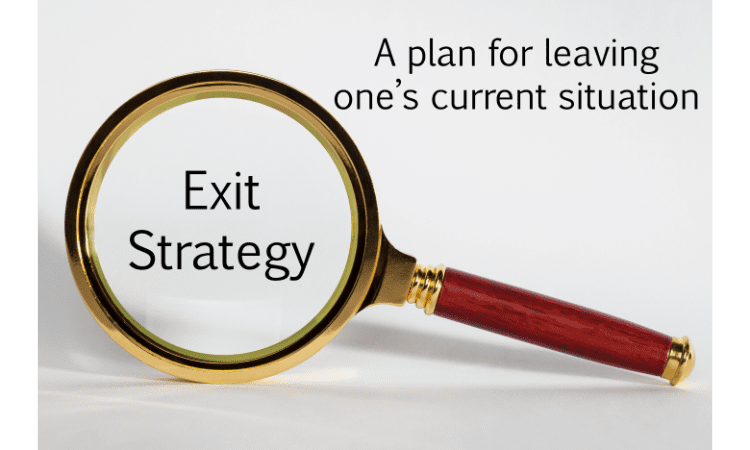
It’s easy to get caught up in the excitement of a new business venture, especially when it comes time to bring on a partner. However, bringing that person on board could be one of the most important and impactful decisions you’ll make as a business owner, so it’s important to ask the right questions before agreeing to any contracts or finalizing any deals about starting a business partnership. Go for the Business partner Examples to your surroundings. To complete your knowledge of how to find partners in business, here are 15 Questions To Ask A Potential Business Partner before committing to anything:
Over 50 percent of new businesses fail within the first five years, often because of a lack of funding.

In today’s business world, partnerships are more common than ever. While the definition of a ‘partnership’ is broad, it can be a good deal for both parties involved. This is one reason why over 50 percent of new businesses fail within their first five years—often because of a lack funding and resources to grow. By partnering with someone in your industry or look for business partner who has experience or resources you need, you can take advantage of their knowledge without having to start from scratch yourself. Additionally, if done correctly, this partnership could also enrich both companies’ bottom lines by helping them expand into new markets or acquire new customers faster than they would have on their own.
Business owners must do their due diligence to find the right partner and ensure they’re not setting themselves up for failure.

Asking these partnership questions will help you to determine if your potential partner has the following traits:
- Trust is essential for both parties, and it must be earned. Make sure that your potential partner trusts you enough to work with you.
- If someone doesn’t respect your business or the industry that you are involved in, then it’s unlikely that he will be able to collaborate well with you on a project or company.
- While some people may seem like they have big dreams, they may not actually have the skillset needed to achieve them—or they may just not care as much as they say they do! Ask yourself whether this person seems genuinely committed to what he’s doing (and if he’ll fit well into your team).
- Ambition/Ambition = motivation = commitment = success! It all comes down to ambition: does this person want what we want? And how much does he want it?
List of 15 Questions To Ask A Potential Business Partner
1. Have you been in a business partnership before? If yes, how did it end?

If you have been in a business partnership before, ask about the experience. You will want to know how the partners ended the partnership. Why did they decide to end it? What lessons did they learn from that experience?
2. What motivates you? How would you describe your work ethic?

Motivation is the reason you do what you do. It’s the reason you get out of bed in the morning and it’s what drives you to push yourself harder, faster, and to be better than yesterday.
If your new partner does not have a clear understanding of their motivation or isn’t able to articulate that motivation clearly, then there’s a good chance they won’t stick with your business venture through thick and thin.
3. Are you a risk-taker? Would you be willing to invest your own money into this venture?

You should ask this question early on, even before you’ve decided to work with the other person. You want to know that they’re not going to back out at the last minute if things get too risky or unpredictable.
It’s important that you both have an idea of how much risk you’re willing to take with your investment. If there’s only a small chance of success but a high reward at stake, then maybe it would be worth it for both of you to invest your own money into this venture.
4. How do you handle a crisis? How do you face adversity?

It’s important to know how someone handles a crisis because it’ll be your business lifeblood. You probably wouldn’t want to start a company with someone who can’t handle adversity well, so ask them about their past experiences and how they’ve handled them. If they haven’t had any major problems or challenges yet, ask what their plans are for when the inevitable comes knocking at their door (or email inbox).
When you’re talking with people who are interested in partnering up with you, try asking questions like: “What was the worst day of your life?” Or “What do you do when everything goes wrong?” For example:
How did he/she get through it? Was there something specific that helped him/her cope or deal with the situation? How would he/she advise others who are dealing with similar difficulties? What did he/she learn from these events?
5. What is your current financial situation? Do you have any debts or liens that might impact our business arrangement?

You might be wondering, “How much money do you have available to invest in the business?” Or perhaps you’re more interested in asking, “What is your financial situation like right now?” Either way, this will help you determine whether or not it’s a good time for the two of you to start up a new venture together.
Asking these questions will help ensure that your partner isn’t going bankrupt and won’t be struggling financially when things get tough—which can happen even with the most successful businesses (and especially if it’s just starting out). If there are any red flags about their current financial situation, such as a recent bankruptcy filing or heavy credit card debt load, then this may not be someone with whom you’d want to strike up an alliance.
6. How do you expect to divide profits and losses from the business? What is an acceptable division of profits and losses for this partnership arrangement?

The next set of questions to ask a potential business partner is related to the division of profits and losses from the business. In order for both parties to feel confident about their investment in the partnership, it is important for both parties to understand how profits and losses will be divided by each partner.
How much money are you willing to contribute? How much time are you willing to commit? What role do you expect this new enterprise will play in your life? How would you like this new enterprise structured? How will it be managed and operated?
7. If you didn’t have to work, what would you do with your time? Would that still be important to us while we are building our business together?

Ask your partner what she would do if she had unlimited time and no money. This question will reveal whether your partner is driven by intrinsic motivation—the desire to work out of passion, rather than for monetary gain—and whether she will continue to be motivated without the promise of a paycheck.
To determine compatibility, get some answers from both you and your potential partner. If one or both of you say that something else would be more important (such as spending time with family), it’s an indication that there may be differences between your values, priorities, goals and motivations.
8. What is your communication style when working with others on projects or tasks? What role do you like to play in a team environment?

Communication is one of the most important aspects of a successful business partnership. It’s not just about talking and sending emails, it’s also about listening.
If you’re going to be working with someone else on projects and tasks, they will need to understand how you work best as well. This is where communication comes into play.
You should ask questions such as: “What kind of communication do you prefer when working together?” or “How would you like to be kept updated on progress?” These types of questions give both parties an idea of how they prefer to communicate so that there are no miscommunications down the road.
Communication is essential in any relationship; especially when it comes to running a business!
9. Do you have a preferred exit strategy?

Exit strategy is the plan you have to get out of your business. It’s not a plan for failure, it’s not a plan for selling out and it’s not a plan for giving up. You need an exit strategy because some day you may want to sell or retire from your business, and if you don’t have one, then you’ll probably be stuck forever.
The best way to find out about someone’s preferred exit strategy is by asking them what their ideal outcome would be at the end of their career in this particular industry or with this particular company. For example: “What would make today perfect?”
10. How much capital do you plan to contribute to the business?

- How much capital do you plan to contribute to the business? This is an important question, as there are many ways that a business can be funded. Some individuals prefer to bootstrap their business and invest their own money, while others are content with making a small investment and looking for outside financing. The amount of capital required will depend on your industry and the type of business model you choose.
- Will you need any outside funding in addition to your contribution? If so, what kind of investors have been approached or considered thus far? A potential partner should be able to share this information openly with potential investors.
11. What do you see this business looking like in five years?

It’s natural to be excited about the possibility of sharing your vision, but you should also consider how well your partner’s vision aligns with yours. For example, if they want to grow their business and you would rather keep it small and profitable, a partnership may not work out.
If they’re enthusiastic about expanding into new markets or growing their business in general, this might be a good match for you. It could be that they have very specific ideas about how they want their company to expand while still keeping the same goals as yours (or vice versa). If so, then it could be an advantageous partnership for both parties involved!
12. Would you consider yourself frugal in terms of spending money?

One of the best ways to determine if your business partner is frugal is by asking them about their current finances. If you are looking for partners who are willing to invest in the company, then it’s important that they have some money saved up.
You can also ask them how much they plan on investing in the company and whether or not they have enough money to make an initial investment. The more capital a potential partner has available, the more likely it is that they will be able to afford working with you long term
13. What is one personal goal you are currently trying to achieve?

- What is one personal goal you are currently trying to achieve?
- What is the time frame for achieving this goal? (If it’s an annual goal, just provide the year.)
- Why do you want to achieve this goal? (Why does it matter to you?)
- What specific steps do you need to take in order to achieve this goal? (What do other people who have achieved similar goals suggest as crucial steps along the way.)
- How will you know when you’ve achieved your goal? (Do they offer a tangible metric—like a measurement of weight loss or financial savings—or something more intangible like a feeling of accomplishment and satisfaction.)
14. How much time are you willing to commit to the business?

Asking this question is important because it will help you determine whether your partner has the time to devote to the business. If they do, then you’re good to go! But if not, then it might be best for you to look for someone who does have the free time that can be necessary for running a successful business.
Ask them how much time they are willing to commit per day and/or week on average and ask them what their minimum daily or weekly commitment would be as well as what their maximum daily or weekly commitment would be. For example: “How many hours per week do you plan on devoting towards our new company?”
15. What do success and failure look like to you?

Asking a potential partner about the difference between success and failure will tell you a lot about them. If they define success as something that happens without effort, then they may not be the right partner for you. If they define failure as something that happens when things don’t go their way, then they may not be the right partner for you.
On the other hand, if your potential business partner defines success as accomplishing what he or she needs to accomplish in order to feel fulfilled—and then going on from there—then maybe this person is someone with whom you can work well together. It all depends on how they approach those questions!
Do You Actually Need A Business Partner?

You should consider whether you really need a business partner. It is not necessary for every startup, and partnerships can be very difficult to manage. You will want to make sure that the partnership is in alignment with your goals and values before entering into one.
Once you have decided that you do want a business partner, make sure that they are going to work well with you as well as having similar goals and values. It is important not only to discuss the potential partnership but also have time spent together working on projects before making it official so that both parties know what they are getting themselves into from the beginning.
Conclusion
No matter what your business is, starting a business is a major commitment. That’s why it’s important to find the right partner. Getting the right person or people on board can determine whether your business succeeds or fails. When you’re getting ready to start a new venture, ask yourself these questions about each potential partner: How well do we work together? Is this person willing to put in the time and effort required for success? Will we be able to resolve issues without hurting our relationship? Do I trust this person with my career goals, ideas and money? If you answer “no” to any of these questions then it may be time for you to consider going at it alone.











